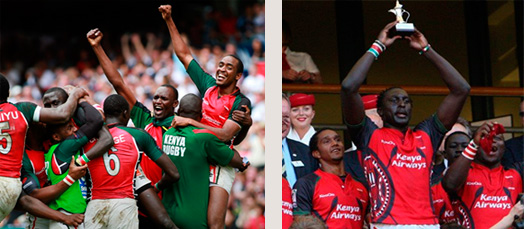Kenya, often celebrated for its breathtaking landscapes, prolific wildlife, and world-renowned athletes, hides a treasure trove of cultural riches in its traditional games.
Beyond the athletic achievements and natural wonders, these traditional games offer an immersive window into the diverse cultures that make up this remarkable nation.

In this article, we will delve into the captivating realm of Kenyan traditional games, exploring their profound cultural significance and the imperative need to preserve these cherished pastimes.
If you’re curious to know more about these hidden gems of Kenyan culture, read on.
Cultural Significance of Kenyan Traditional Games
Kenyan traditional games represent a vibrant tapestry woven from the threads of the country’s diverse ethnic groups.
Each of these communities contributes a unique set of games and traditions to Kenya’s rich cultural mosaic. These games serve as a means of transmitting cultural values, stories, and skills from one generation to the next.
Often played during special occasions, ceremonies, and community gatherings, these games provide a platform for social bonding and friendly competition.
One of Kenya’s most beloved traditional games is Bao, a strategic board game that enjoys widespread popularity. Bao boards, often exquisitely handcrafted, adorn homes and local establishments, serving as focal points for the game.
Players employ seeds, stones, or beads as game pieces, strategically maneuvering them around the board to capture their opponent’s pieces.
Bao is more than just a game; it’s an opportunity for friendly competition, a showcase of strategic thinking, and a means to strengthen social connections within the community.
Mancala, another traditional game, holds a special place in Kenyan culture. Players place small stones or seeds on a wooden board in pits or holes, aiming to capture their opponent’s pieces.
Different regions in Kenya have their variations of Mancala, each adding unique rules and twists to the game.
Wrestling, a physically demanding traditional sport, is celebrated among Kenyan tribes. The symbol of strength and endurance is often used to resolve conflicts or exert dominance.
I have checked the text for spelling, grammar, and punctuation errors and found none. These wrestling matches are accompanied by lively songs, dances, and drumming, creating vibrant and culturally significant spectacles.
Preservation and Modern Challenges
Despite their cultural significance, traditional games in Kenya face several challenges in the modern era. One notable challenge is the growing influence of modern sports and entertainment, including the rise of sports betting.
As more Kenyans become engrossed in activities like football and athletics, traditional games risk fading into obscurity.
The allure of quick riches through sports betting can divert attention away from the rich cultural heritage of traditional games.
Striking a balance between embracing modern sports and preserving traditional games is paramount.
Both play essential roles in Kenyan society, with traditional games offering a window into the nation’s cultural soul.
Organizations and community leaders must collaborate to promote and safeguard these cherished pastimes.
The Role of Education and Community Engagement
Education and community engagement offer promising avenues for preserving traditional games in Kenya. Schools can incorporate traditional games into their curriculum, educating students about these games’ cultural significance and historical roots.
This approach imparts valuable knowledge and fosters a sense of pride and connection to their heritage.
Community events and festivals also play pivotal roles in keeping traditional games alive. These gatherings provide a platform for showcasing these games to a wider audience, encouraging active participation.
By involving both young and old generations, communities can ensure that these games are passed down through the ages.
Promoting Cultural Exchange
Traditional games in Kenya are an integral part of the nation’s identity and a source of cultural exchange.
As tourists from all corners of the globe visit Kenya, they have the opportunity to learn and engage in these traditional games.
This exchange fosters a deeper appreciation for Kenyan culture and strengthens the bonds between locals and visitors.
Local artisans who create traditional game boards, pieces, and accessories also benefit from cultural exchange.
Their craftsmanship can be showcased and sold as unique souvenirs, supporting local economies while preserving traditional arts and crafts.
Conclusion
In Kenya, traditional games represent more than just pastimes; they are gateways into the country’s rich cultural heritage.
As the nation continues to evolve and embrace modern sports and entertainment, it is vital to ensure these traditional games remain intact. Education, community engagement, and cultural exchange are pivotal strategies to promote and preserve these cherished pastimes.
By doing so, Kenya can continue to celebrate its diverse cultures and pass down its unique traditions to future generations, offering the world a glimpse into the soul of a truly remarkable nation.
If you want to know more about Kenya’s cultural treasures, start by exploring its traditional games.
Kenyan Traditional Games: A Glimpse into Cultural Sport – Newshub360.net
Related Post
Credit: www.Newshub360.net
